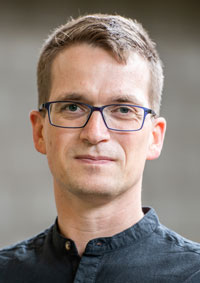05-MAG-GH2 Environmental Hazards
Representative Sebastian Uhlemann
Environmental hazards are widespread in marine and coastal environments. Physical coastal hazards include those caused by sea level changes and extreme storms. The immediate effect of these hazards is coastal retreat, that needs to be mapped and put into its historical context using both remote sensing and direct observations. The water column is then prone to a series of hazards, related to ocean chemistry (including pollutants). This module explore these different types of hazards and the techniques that are currently employed to study them.
know the basics of hazards related to sea level changes, extreme storms, coastal erosion and ocean-related hazards
are able to set up and run simple wave models (open source)
gain hands-on experience with typical direct measurement tools
acquire basic knowledge of ocean chemistry and different types of pollutants
GIS course
Course Type 1: Lecture, Exercise (L+E) 2.0 SWS ( 28.0 h)
Course Type 2: Lecture, Exercise (L+E) 1.0 SWS ( 14.0 h)
Course Type 3: Lecture, Exercise (L+E) 1.0 SWS ( 14.0 h)
Tutorial(s): -
Workload:56.0 h presence time
62.0 h self-study
62.0 h exam workload
180 h total workload
module exam
exam elements: 1
SL: 0
100 % oral exam
Church et al., 2010 -Understanding Sea?Level Rise and Variability - Wiley
Bird et al., 2008 - Coastal Geomorphology: An Introduction, 2nd Edition - Wiley
Scientific papers assigned by the lecturers
Basic Data
Master Applied Geosciences
Module Type
Compulsory
First Year of Study
Offering Departement
FB5 Geosciences
Sommersemester
Course LanguageEnglish
6 CP
4 SWS
Contact

Contact
Prof. Dr. Sebastian Uhlemann
GEO 4070
 uni-bremen.de
uni-bremen.deContact

Contact
Prof. Dr. Sebastian Uhlemann
GEO 4070
 uni-bremen.de
uni-bremen.de
